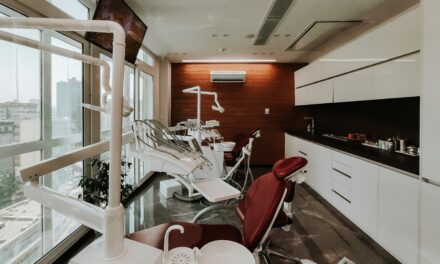The General Dental Council (GDC) has released its latest working patterns data, offering a detailed snapshot of how over 56,000 dental care professionals (DCPs) are working across the UK. The findings, based on responses from 70% of the DCP register, provide valuable insights into employment models, clinical engagement, and care delivery across the sector.
Since the launch of the working patterns survey in June 2024, 56,032 DCPs have reported being active or seeking work in the dental sector, representing 63,968 professional titles. The data shows that 87% of DCPs are engaged in clinical work, with nearly half (48%) in fully clinical roles and 17% in predominantly clinical roles.
Working hours vary widely, with 94% of DCPs working fewer than 40 hours per week. Nearly half (49%) work between 30 and 40 hours, while 45% work 30 hours or less. Around 28% work between 20 and 30 hours weekly.
Care delivery is split across NHS and private sectors. Over a third (36%) of DCPs deliver a mix of NHS and private care, while 26% focus primarily on NHS services and another 36% on private care.
Dental nurses make up the largest group of respondents (77%), followed by dental hygienists (10%). Most DCPs (65%) work in general dental practice, with 12% in specialist practices and 6% in community settings.
The data also highlights differences across DCP roles:
- Employment status: 79% of all DCPs are employed, but 65% of dental therapists and 68% of dental hygienists are self-employed or work as locums. Among clinical dental technicians, 41% are business owners or part owners.
- Working patterns: 82% of dental hygienists are in fully clinical roles, with 63% working under 30 hours per week. Half of dental nurses work 30–40 hours weekly. In contrast, 55% of dental technicians work in fully non-clinical roles, primarily in labs.
- Care type: 61% of clinical dental technicians provide fully private care. Only 20% of dental therapists focus on NHS care. Orthodontic therapists show a mixed profile, with 43% delivering both NHS and private care.
- Workplace settings: 80% of dental hygienists work in general practice, while 64% of orthodontic therapists are in specialist practices. Most dental technicians (67%) work in labs.
- Location flexibility: 39% of dental hygienists and 38% of dental therapists work across two locations, compared to 81% of dental nurses who typically work in one.
Theresa Thorp, Executive Director of Regulation at the GDC, said:
“This is our second year collecting the working patterns data, and with a 70% response rate, we’re building a robust picture of how dental professionals work across the UK – from the diversity of employment patterns across different roles, to the balance of clinical and non-clinical work, and the mix of NHS and private care delivery.”
The GDC encourages DCPs to keep their working patterns data up to date during annual renewal, helping to inform workforce planning and support better patient care. The summary includes breakdowns by role, including dentists, dental nurses, hygienists, therapists, technicians, and orthodontic professionals.
Disclaimer: The accuracy and information of news stories published on this website is accurate on the date of publishing. We endeavour to update stories if information change. You can contact us with change and update requests. Where possible, we will link to sources. Content on this website is for guidance purposes only. We cannot accept any responsibility or liability whatsoever for any action taken, or not taken. You should seek the appropriate legal advice having regard to your own particular circumstances.

Restoration Courses
Courses suitable for any health and social care practitioner who is considering making an application for restoration back onto the register.

Insight & Remediation
Courses that are suitable for any healthcare practitioner who is facing an investigation or hearing at work or before their regulatory body.

Probity, Ethics & Professionalism
Courses designed for those facing a complaint involving in part or in whole honesty, integrity and /or professionalism.






Recent Comments